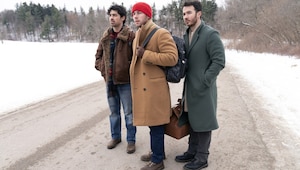Are friendship breakups reversible?
Or is it time to let go...

I met my best friend when I was eight; she sat beside me in school and after that day, we were inseparable. We shared secrets, whispered under covers at sleepovers, giggled through cafeteria lunches, and supported each other through tough times. She witnessed my first crush (funnily enough, we both liked the same guy), my first boyfriend, and even the first death in my family. She was always there for me.
Then, high school hit. New social circles emerged, and we drifted apart. She found her place with the budding scientists, while I found solace in books. Our once effortless friendship turned into an awkward distance, and before I knew it, we were strangers in the halls.
Years passed by with college, jobs, and the chaos of young adulthood keeping us apart. Yet, a part of me always longed for that connection, for the girl who knew me better than I knew myself. One evening, I stumbled upon her on social media; she had completely transformed and was now in a brand-new city. Feeling nostalgic, I reached out with a simple hello and an offer to catch up. To my surprise, she replied almost immediately. We talked for hours, confessing regrets despite our years apart.
Our friendship may have been broken, but it wasn't shattered. It took time, courage, and a little nudge from fate, but we found our way back to each other. Not in the same way of course, but the damage done was repaired. And in the process, I learned that sometimes, the most profound connections can withstand even the longest of separations.
But are all friendships reversible? We're not so sure. Sometimes the damage cuts too deep and the trust is shattered beyond repair. It could be because of a toxic dynamic, a betrayal that can't be forgiven, or simply a clash in core values that creates a permanent rift.
Here are a few signs that a friendship might just be well beyond saving.
A healthy friendship is all about respect and having each other's backs. But if your friend constantly puts you down, ignores your boundaries, or tries to boss you around, it can make reconnecting or even catching up a real challenge.
Unresolved conflict
Did the friendship fizzle out after a big fight, or was there a painful incident that got swept under the rug? If there's no open communication and a willingness to apologise or forgive, the hurt and sadness can stick around for way too long.
Life paths moving in vastly different directions
Sometimes we just end up drifting apart; it's how life works. If your paths have taken dramatically different turns and you no longer share common ground, trying to force that connection back can feel awkward and strained. What once connected you might no longer hold the same significance anymore.
Dishonesty and betrayal
Distance can lead to less empathy
Over time, without regular interaction, it can be difficult to understand what the other person has been through. This lack of shared experiences can make it harder to put yourself in their shoes and truly empathise with their feelings.
**Sometimes, the urge to reconnect with a former friend stems from guilt, especially if you were the one who initiated the break. However, it's important to be honest with yourself. Are you truly missing the friendship, or are you trying to absolve yourself of perceived wrongdoing? Reconnecting shouldn't be an act of emotional blackmail.
Letting go of a friend, even when necessary, can be emotionally challenging. Allow yourself to grieve the loss, but prioritise your well-being. Focus on self-care, surround yourself with supportive people, and don't be afraid to seek professional help if needed.
Also read: Everything I learned about love is from being an older sister
Also read: Don’t like your friend’s partner? Here's how to deal with it
more from Life

Scents that make staying in feel like a winter wonderland

'Bridgerton' season 4 trailer: Benedict and Sophie are ready to serve a Cinderella-esque romance

How training for a marathon became the most honest conversation I have ever had with myself

Emily in Paris season 5 is back—and we’re still hate-watching every minute of it

The best makeup tonics to upgrade your skincare and makeup routine

Taylor Swift's exact workout that kept her stage ready for the Eras Tour

“Pebbling” is the non-toxic, genuinely adorable dating trend we all needed

Is 'future faking' the new gaslighting? Decoding this new dating trend

Bad at gifting? Check out these stocking stuffer ideas based on each zodiac sign

15 new Christmas movies you might want to add to your 2025 holiday watch list
